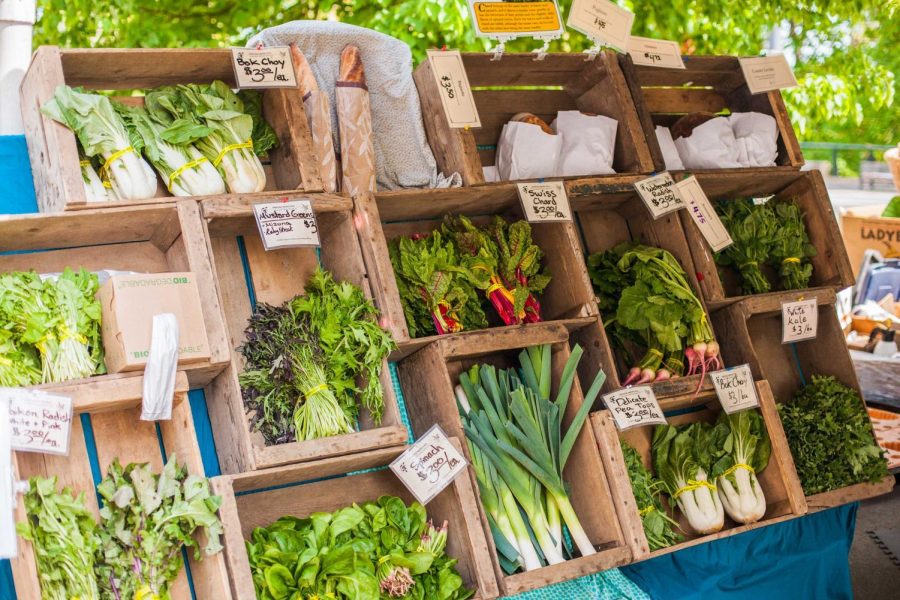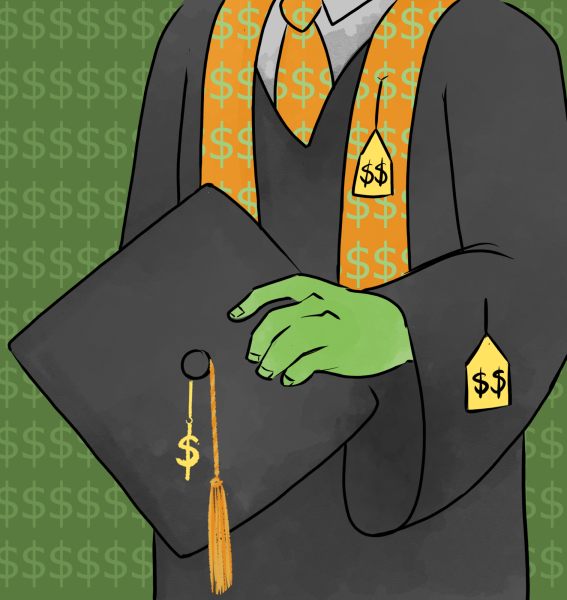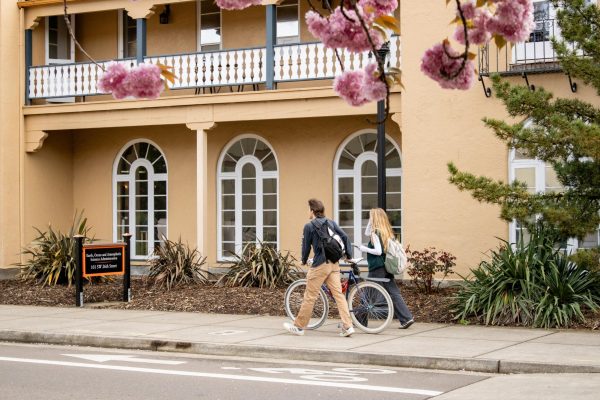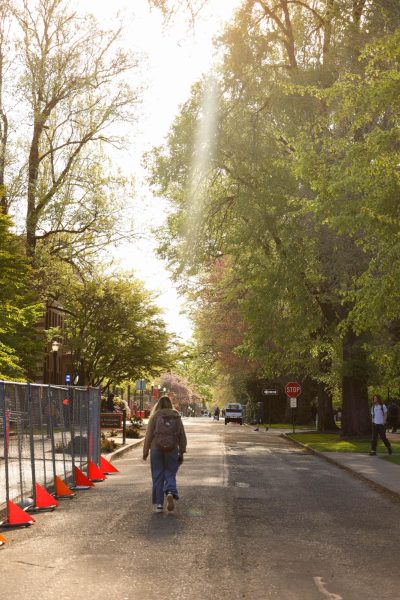Daarstad: We all must eat less meat
February 24, 2020
Everyone should be eating less meat. The amount of meat that Americans consume is not sustainable and is causing harm to the environment.
The production of meat has increased about five times in the past half-century, and the amount per person has doubled. By 2050 this number is supposed to increase by another 140%.
As of 2018, a person will eat an average of 222 pounds of meat per year. This means that if every person at Oregon State University ate meat, a total of 7,275,828 pounds of meat would be consumed in one year.
This increase in meat consumption is a huge problem. Meat has an enormous energy footprint, which is the measure of land required to absorb the carbon dioxide emissions. When compared to a piece of corn, it takes about 75 times more energy to produce meat than corn.
Animal agriculture is responsible for around 18% of all greenhouse gas emissions. This is larger than what is contributed by transportation.
However, by eating less meat or shifting to a vegan or vegetarian diet, that number could be significantly reduced. A vegan is someone who does not eat or use animal products, while a vegetarian is a person who does not eat meat.
By eating less meat, a person can save water, reduce water pollution, reduce the destruction of habitats and ecosystems and reduce greenhouse gas emissions. Which all contribute to a more sustainable future.
To produce one pound of beef it can up to 50,000 liters of water. Not only does it take a substantial amount of water to produce meat, but it can also cause great harm to waterways. Animal waste, antibiotics, and hormones that are involved in the animal agriculture process enter rivers and stream ecosystems, severely harming them.
Around 30% of the land on Earth is used for agriculture, and 70% of that land is used for animal agriculture. Livestock farming can result in overgrazing, which has led to soil erosion and deforestation.
The amount of meat people consume today will not lead to a sustainable future. The fact is that people need to start eating less meat.
While it can be difficult at first to implement this lifestyle change, there are different things that can help.
Pavneet Kaur, a dietetics major and president of the Vegan and Vegetarians club, shared the ways that helped her. From following different Instagram accounts that posted vegan facts and awareness, to finding support systems online, there are multiple things in place that can help people who want to make this lifestyle change.
“What was most helpful for me, was reminding myself every day of all the beneficial aspects of veganism,” Kaur said.
Joining the Vegan and Vegetarian club is another way to become more involved. The Vegan and Vegetarians club is a safe and comfortable place for students to engage with other vegan or vegetarian students, and to promote the different aspects behind plant-based diets, explained Kaur.
Molly Test, a biology major and secretary of Vegan and Vegetarians club, has been vegan for four years and shared how her vegan journey has impacted her.
Growing up in Portland and having a brother who was vegan she was able to learn a lot, and after she began doing her own research and finding out the realities of mass animal agriculture she decided to make the lifestyle change, Test said.
According to Test, throughout her journey as a vegan she has learned that the best way to get people to learn more about veganism is to lead by example and to approach people with passion.
“I hope they can realize that the diet is already aligned with their values and have every reason to give it a try,” Test said.
A person doesn’t have to become a vegan or vegetarian to make a small difference, just by doing Meatless Mondays a person can do a lot.
With the growing population, the world can not sustain the current diets of Americans. Eating less meat can save our planet.






















































































































